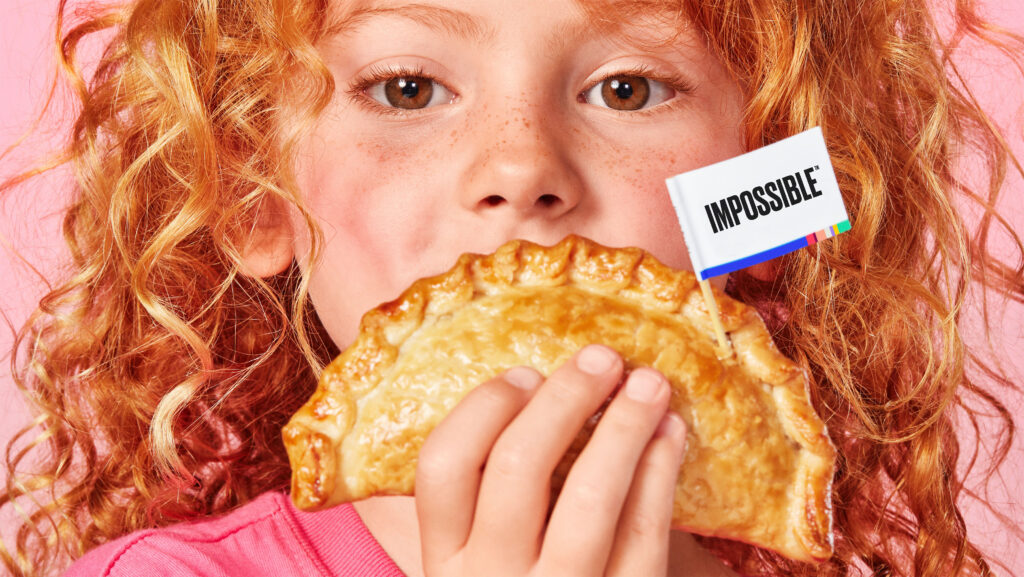Impossible Foods just secured child nutrition labels for its flagship product the Impossible Burger, making its vegan meat suitable for school lunches.
Adding Child Nutrition Labels to the company’s foodservice items means that it is now eligible for Child Nutrition Programs including National School Lunches and School Breakfasts, a voluntary but significant step in Impossible’s plans to enter the K-12 market by fall 2021.
Child Nutrition (CN) Labels, which are authorized by the United States Department of Agriculture (USDA), make it easier for schools to determine how much each ingredient in a school meal — such as Impossible meat — contributes to the federal requirements for child nutrition.
“Making Impossible products available everywhere people consume meat, which for kids often includes schools, is key to the mission of the company,” said Pat Brown, CEO and Founder of Impossible Foods, in a press release.

What vegan meals would children eat?
Now that Impossible Foods has secured the CN labels, its vegan meat will feature in pilot programs rolled out this month in school districts across the U.S., including Palo Alto Unified School District, Palo Alto, CA; Aberdeen School District, Aberdeen, WA; Deer Creek Public Schools, Edmond, OK; and Union City Public Schools, Union City, OK.
Menu items include Impossible Street Tacos, Impossible Frito Pie, and Spaghetti with Impossible Meat Sauce. One participating school in Aberdeen, Washington, has already begun trialing Impossible Meat spaghetti and burgers, and reported “a strong response and engagement from both students and teachers.”
“We are thrilled to be partnering with K-12 school districts across the country to lower barriers to access our plant-based meat for this change-making generation,” said Brown. “Schools not only play a role in shaping children’s dietary patterns, they play an important role in providing early education about climate change and its root causes.”
How much do kids know about climate change?
The California-based company also released an insights report that shows how much young people already know about the environmental impact of the food they eat.
According to the report, 4 out of every 5 children said that they are “somewhat to extremely familiar” with the topic of climate change.
Sixty-two percent also said that they learned about climate change in a school environment. And, while 7 out of 10 children feel that they can make a difference, nearly 90 percent said that it’s important for them to do something about climate change themselves.
While 97 percent of kids still eat meat every week, once informed about the link between animal agriculture and climate change 78 percent reported the importance of reducing the farming of cows, in particular. Sixty-three percent also said that they were more likely to cut back on meat themselves.
“Kids provide an enormous and largely unexplored opportunity for environmental progress,” said Jessica Appelgren, Vice President of Communications at Impossible Foods. “They care about climate change and they want to do something about it, and data shows that they have a significant influence over family meal decisions.”
“Our CN Label launch is just the beginning of Impossible Foods engaging this next crucial generation,” she added.
Earlier this year, Impossible Foods heavily reduced the price of its vegan meat in order to compete directly with traditional animal products. The company could also go public in the next few months, with an initial public offering (IPO) valued at approximately $10 billion.


